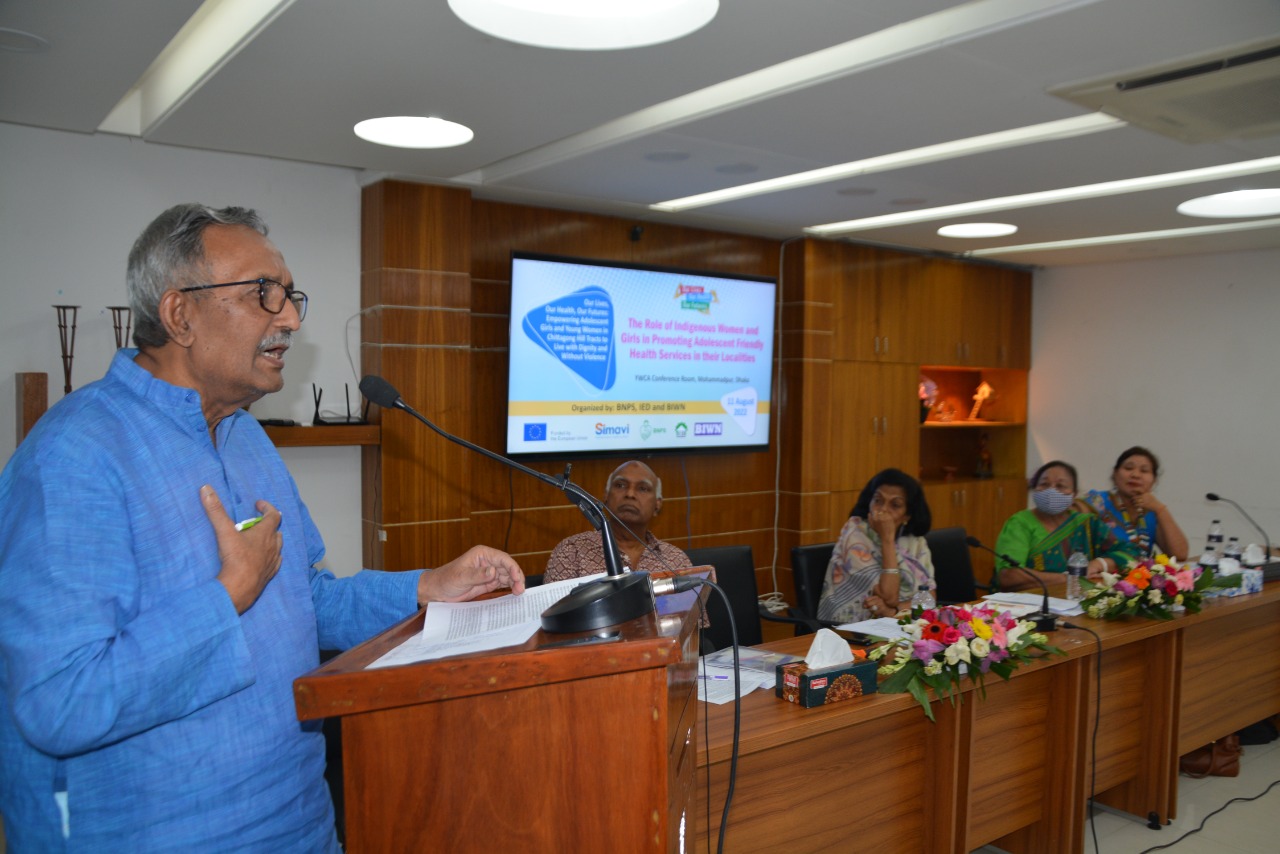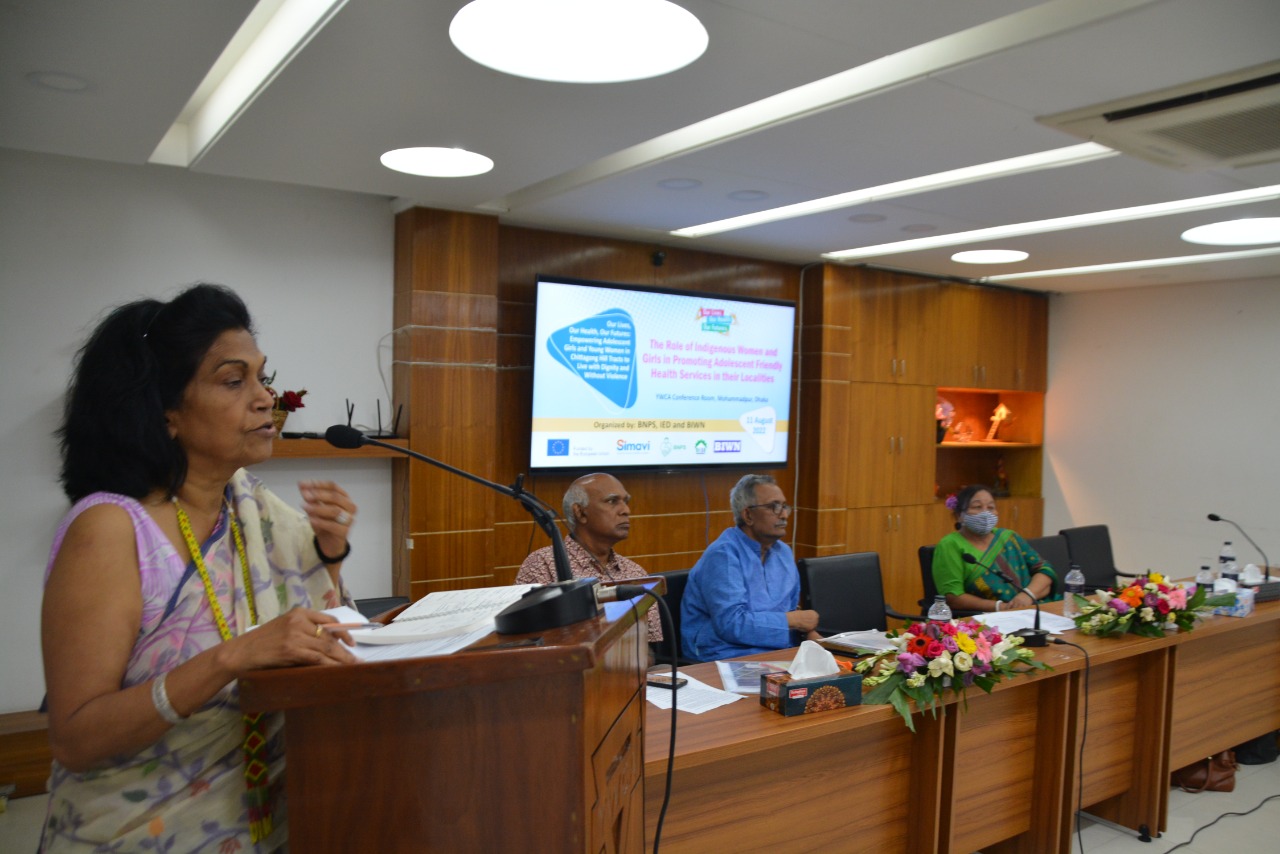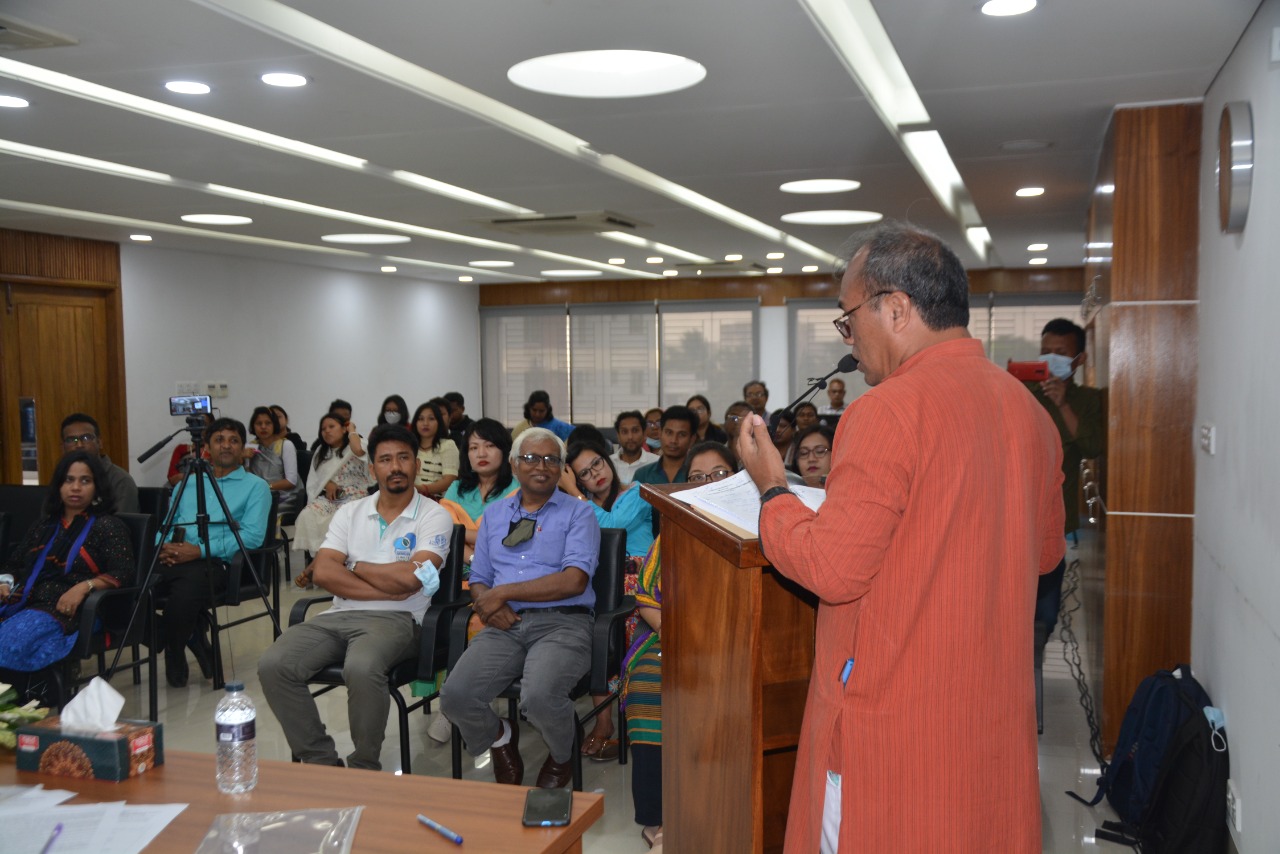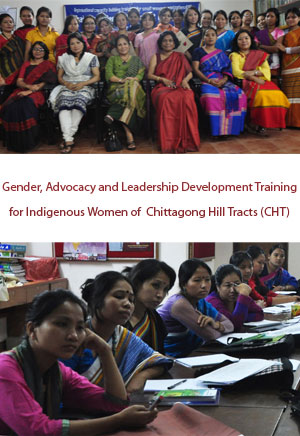| |
 |
A discussion meeting was jointly organized by Bangladesh Nari Progati Sangha (BNPS), Janoudyog and Bangladesh Indigenous Women Network (BIWN) on 11 August 2022 at YWCA Conference Room, Mohammadpur, Dhaka under the project ‘Our Lives, Our Health, Our Futures (OLHF)’ supported by Simavi Netherlands. This meeting was organized on the occasion of International Indigenous day under the title of Role of Indigenous Women and Girls in Promoting Adolescent Friendly Health Services in their localities.
Honorable Member of Parliament & Convener of the Parliamentary Caucus on Indigenous Peoples Mr. Fazle Hossain Badsha and General Secretary of Bangladesh Adivasi Forum, Mr. Sanjeeb Drong were present in the meeting as special guests. Other discussants were Ms. Chanchana Chakma, Member Secretary of BIWN; Dr. Mushtaq Ahmed, Convener of Janoudyog; Mr. Omar Faruque, Lobby & Advocacy Officer of Simavi; Ms. Shefalika Tripura, Executive Director of KMKS; Mr. Numan Ahmed Khan, Executive Director of IED and Mr. Tarique Mithul, Coordinator of IED. The meeting was chaired by Ms. Rokeya Kabir, the Executive Director of BNPS. The meeting sessions were moderated by the Project Manager, Mr. Sanjoy Majumder. Open session of this meeting was moderated by the Deputy Director of BNPS, Ms. Shahnaz Sumi. Women activist Ms. Falguni Tripura presented the concept note of the event. After the discussion meeting, an indigenous adolescent girl-led musical band F Minor performed some songs.

Speakers said, according to our constitution, each citizen has equal rights irrespective of their religion, gender, ethnicity. Menstrual Health Management is one of the most important parts of all the girls and women life and this is also matter of their basic health rights. But usually this issue is usually hidden by the girls and societies for the taboo and social stigma. It is perceived that the women of hill tracts are more empowered than plain land. But they are also deprived and discriminated by the patriarchal society. So, the taboo and stigma related to women’s menstrual health also remains there largely. Most of the indigenous girls talk less on this issue. Due to the long distance of Sadar hospital, they do not generally share their physical problems to the doctor. Language barrier also plays a vital role in this regard. This taboos and stigmas should be broken in order to ensure the health rights of the indigenous women & girls. Young girls and their clubs should play a major role achieving that. Adolescent friendly health service is inadequate overall in Bangladesh. Health service providers are judgmental in most cases. Hence, health service provider should also be sensitized.

BNPS has been working for ensuring equality between men and women since 1986. As a rights-based non-governmental development organization, BNPS has been conducting various activities to improve the quality of life of girls and women by organizing and making them aware at the grassroots level. In continuation of this, BNPS is implementing the 5-year (2019-2023) long program of "Our Life, Our Health, Our Future" project to improve women's general health and menstrual health management and stop violence against women in three hill districts through local partner organizations. BNPS is implementing this program in 17 Upazilas of 3 hill districts along with 10 local CSOs of CHT with the funding of European Union and technical support of Simavi Netherlands. Under this program BNPS has involved 12 thousand girls and young women through 300 girls’ clubs.
On December 23, 1994, the United Nations General Assembly declared August 9 every year as Indigenous People's Day in accordance with its Article 49/214. The main theme of this year's Indigenous Day was ‘The role of Indigenous Women in the Preservation & Transmission of the Traditional Knowledge.’
|








